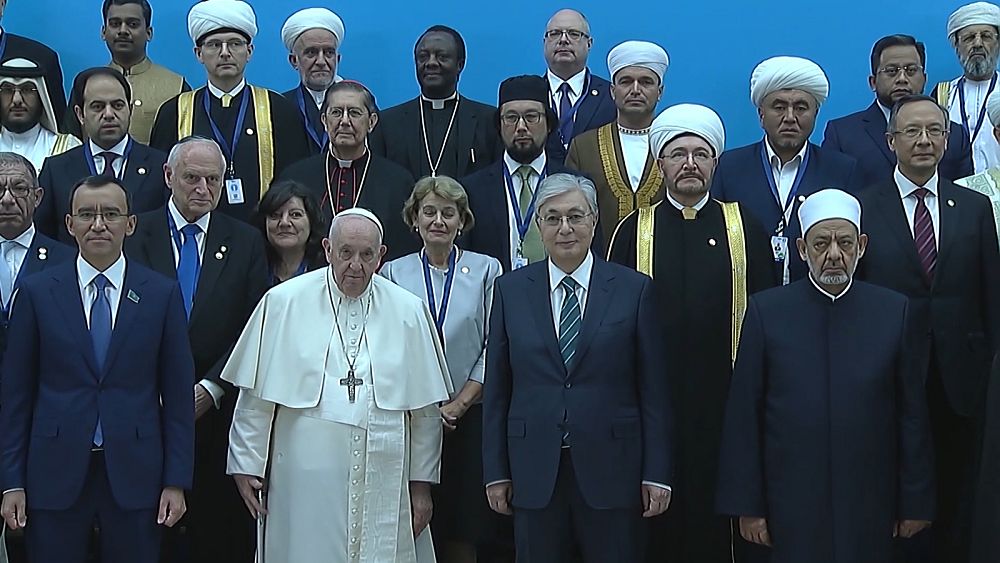Kazakhstan, which is ethnically diverse and has 18 religions, has opened its doors to global interfaith dialogue. In September 2022, its capital Astana hosted the VII Congress of Leaders of World and Traditional Religions. Delegations from more than 50 countries called for world peace.
“The efforts of world leaders and international organizations are not enough to overcome the challenges facing humanity,” says Askar Shakirov, vice-president of the Kazakh Senate, who adds: “The fact that spiritual leaders who have great authority among the world’s people call for strengthening common efforts to overcome all challenges, it is very important.”
Islam, Judaism, Christian faiths and Hinduism among other world religions were represented at this Congress. This year, pope francis just like the Grand Imam of Al-Azhar, the Sheikh Ahmed Al Tayebwere among the most eminent guests.
The presence around the same table of leaders of so many world religions alone sends to the world a message of unity in diversity.
“The main interest,” highlighted David Baruch Lauthe Ashkenazi Chief Rabbi of Israel, “It’s that we meet, we talk and we understand that to solve problems around the world, we must not do it through war, but by sitting around a table and talking to each other.”
“Understand that we are one”
One of the ambitions of the Congress is to re-use the language of reconciliation in a world ravaged by tragedy and to bring religions to the fore to help defuse conflict.
“It is the platform that must be favored rather than moving towards a world divided into antagonistic blocs,” noted Miguel MoratinosHigh Representative of the United Nations Alliance of Civilizations. “Civilizations want to build bonds of understanding and respect and today understanding that we are one is more important than ever,” he says.
Stand out from extremism
The Congress’s final declaration calls on world leaders to abandon aggressive rhetoric and end conflict everywhere.
It affirms that extremism, radicalism, terrorism and all forms of violence and war have nothing to do with authentic religion and must be rejected.
“It should be noted with regret that some political circles use religion as a means to achieve their goals,” noted Allahshukur Pashazadeh, Sheikh ul-Islam, Chairman of the Caucasus Muslim Council and Grand Mufti of the Caucasus. “Furthermore, today we see other religious figures calling for confrontation and war: we all need to be aware of this and fight together against this,” he insists.
Participants planted trees in the new Peace and Harmony Park in the capital of Kazakhstan.
A “same concern for those who suffer”
This park is a symbol of hope for increased inter-religious dialogue, uniting communities around the world and encouraging common efforts in the name of peace.
“We talk about world peace, but I would say these efforts start at the local level, in every small town,” assures Jo Bailey Wells, Bishop of Dorking and special representative of the Anglican Church in Congress, “where perhaps Christians and Muslims together give food to those who are hungry. We have a common goal, we no longer look at our differences, we recognize that we all care about those struggling to survive or suffering,” she believes.
The Congress hopes that its message of peace, based on values common to all faiths represented on the spot, will be heard by as many people as possible throughout the world.
The message of peace from the great religious leaders gathered in Astana

